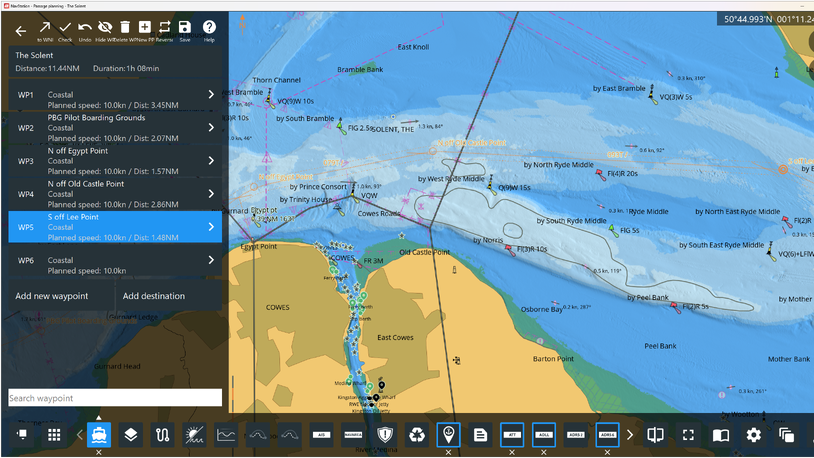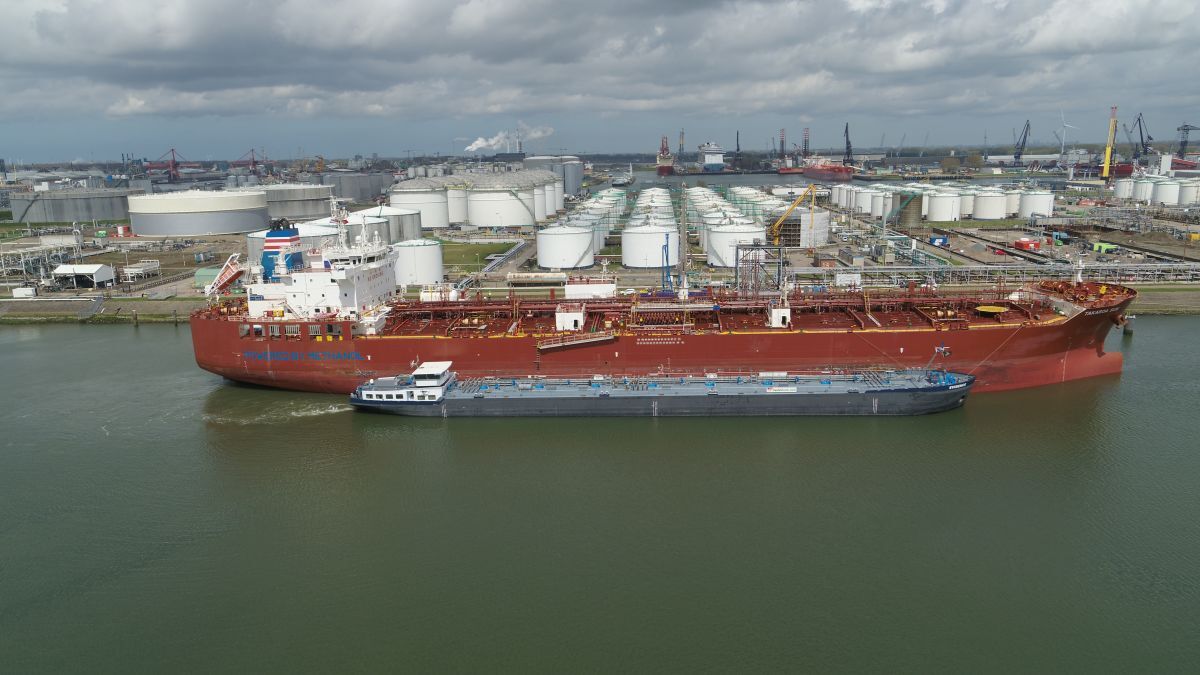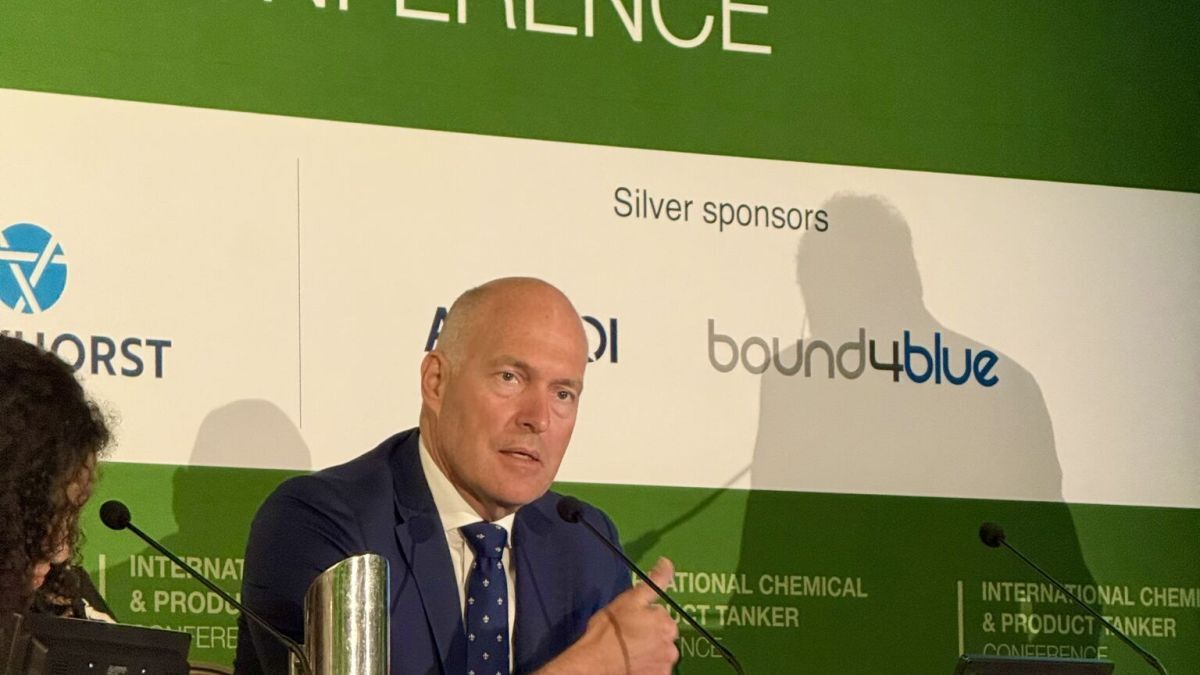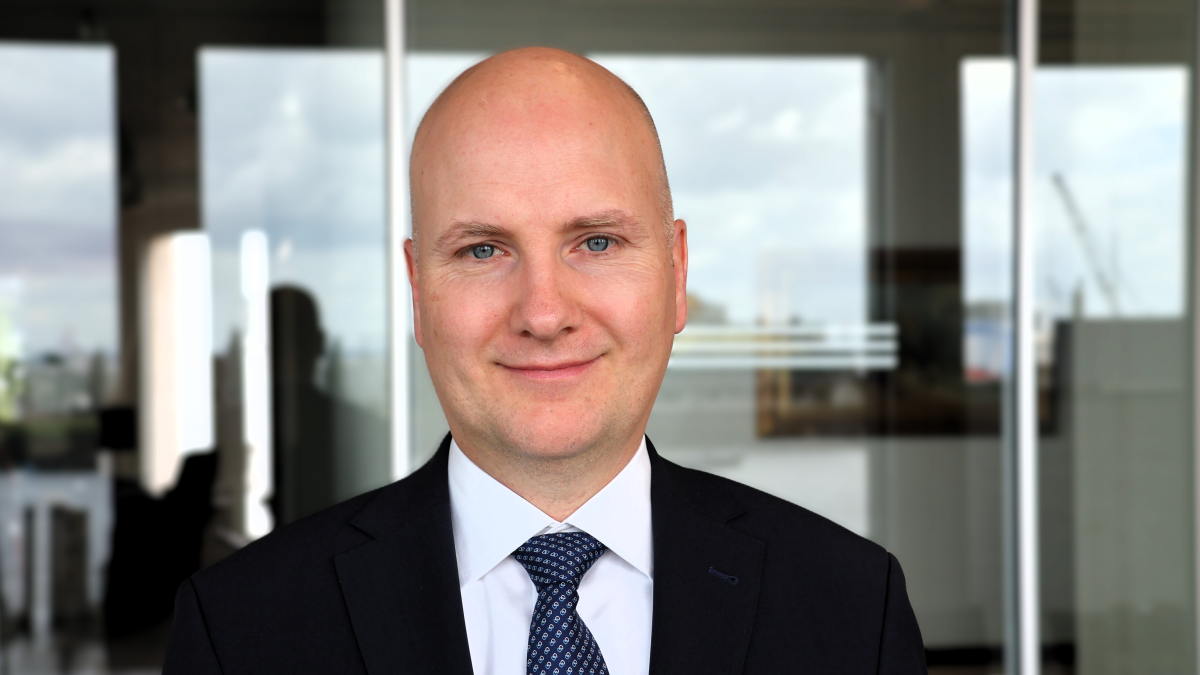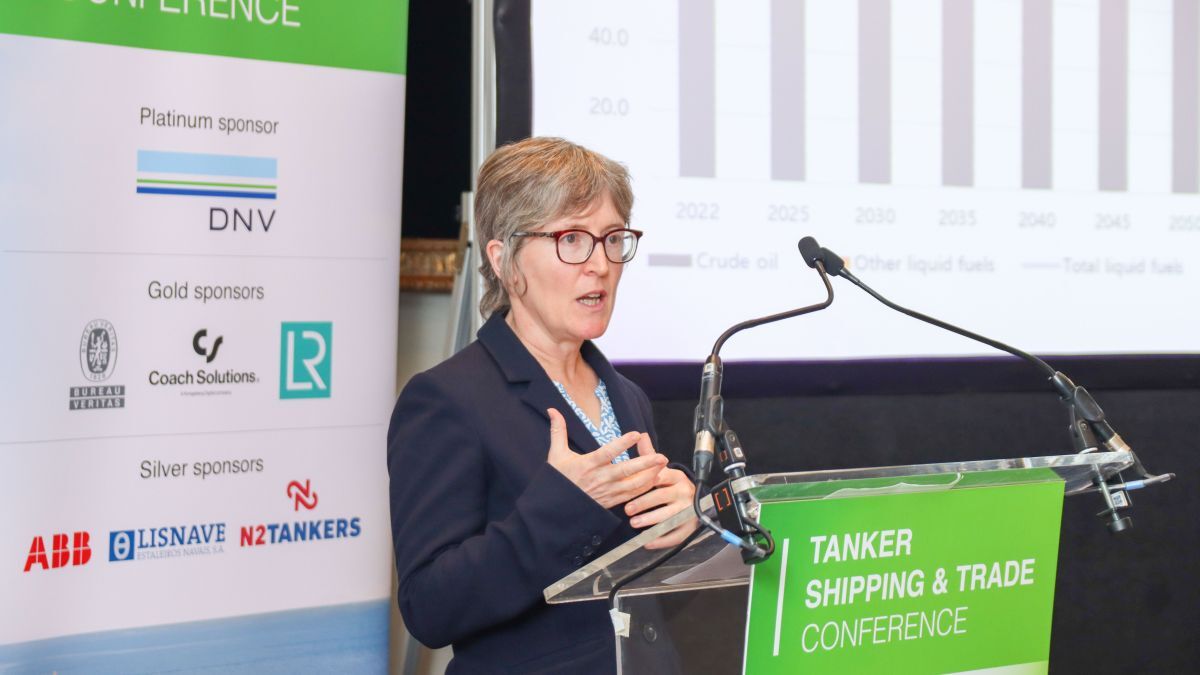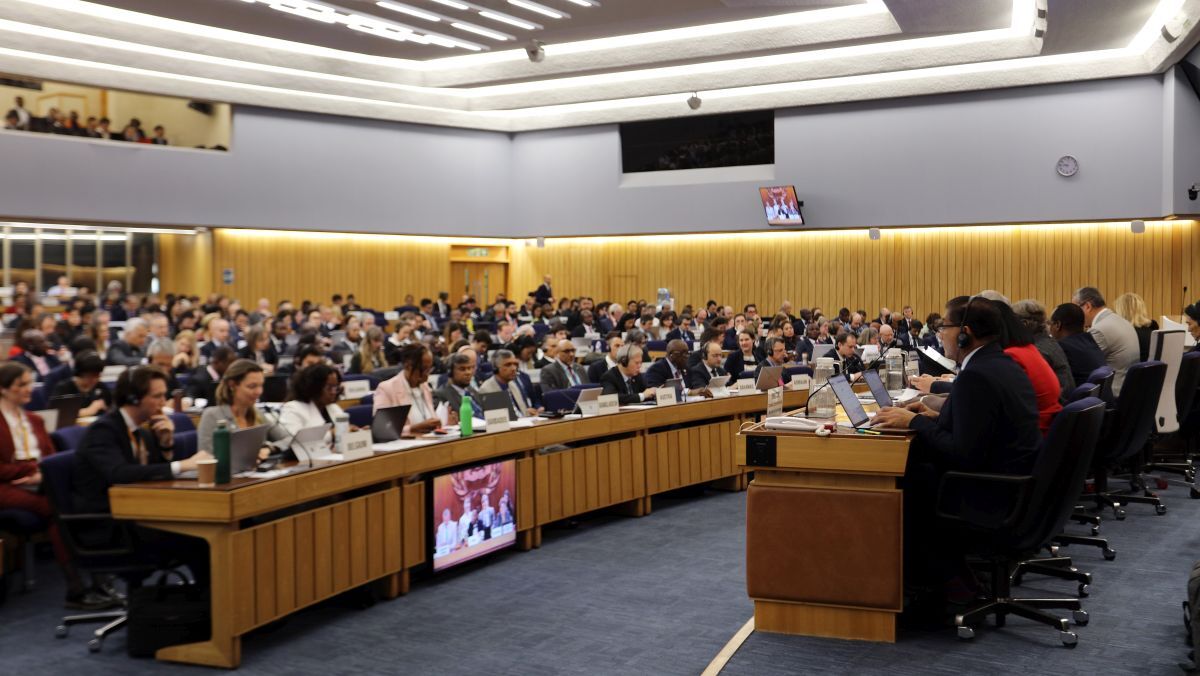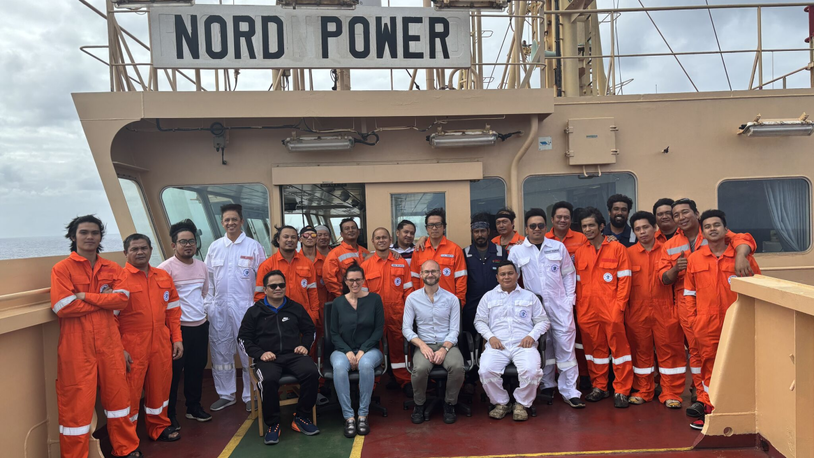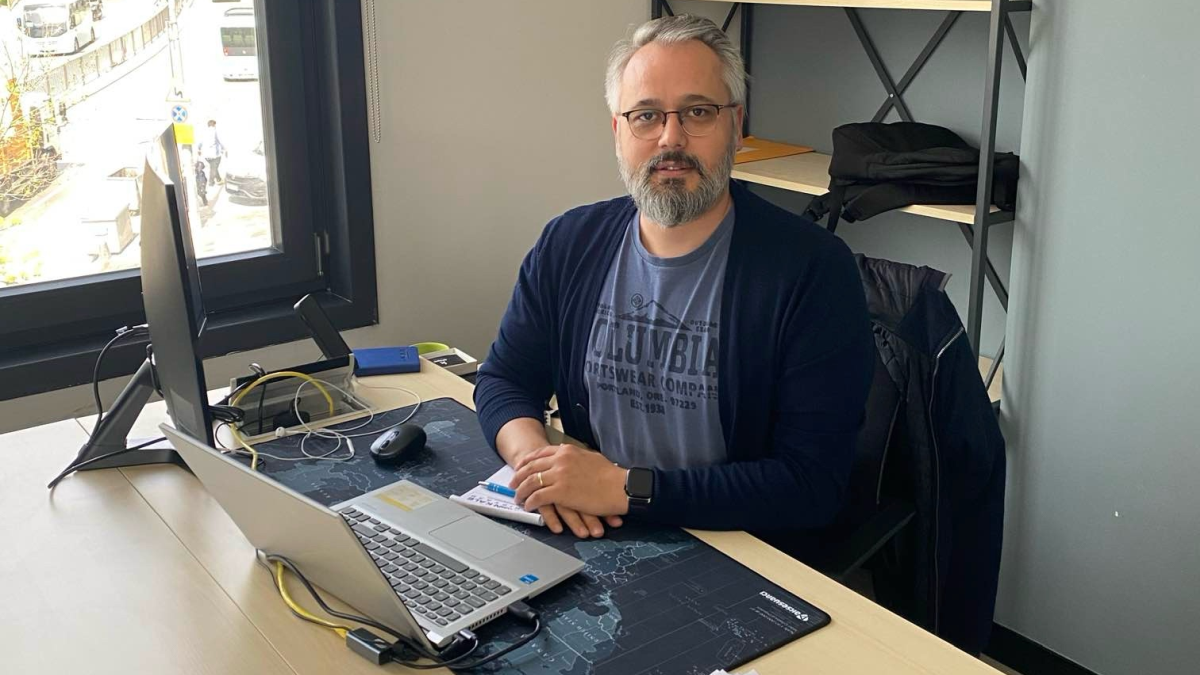Business Sectors
Events
Contents
Register to read more articles.
First barge-to-ship methanol bunkering takes place
In a timely announcement just ahead of The case for methanol-fuelled tankers webinar, Waterfront Shipping has collaborated with Port of Rotterdam, Vopak, NYK and TankMatch to launch the first barge-to-ship methanol bunkering operation in the world
Waterfront Shipping, a wholly owned subsidiary of Methanex Corporation (Methanex), has demonstrated the ease of barge-to-ship bunkering, launching the world’s first barge-to-ship methanol bunkering operation at the Port of Rotterdam.
Waterfront Shipping’s Takaroa Sun – a long-term chartered vessel owned by NYK Bulkship (Asia) Pte participated in the operation as the inaugural methanol-powered ship to be fuelled by a commercial bunker barge.
The premiere bunkering operation took place at the Vopak Terminal Botlek of Royal Vopak with bunker barge MTS Evidence, operated by TankMatch.
The Port of Rotterdam is the largest seaport in Europe with approximately 30,000 visiting seagoing vessels and 100,000 inland vessels per year.
“Waterfront Shipping has been operating methanol-fuelled ships for over five years now, accumulating over 100,000 combined operating hours – and has been bunkering methanol for its methanol dual-fuelled vessels via cargo shore pipelines near Methanex’s production facilities,” said Waterfront Shipping president Paul Hexter. “When appropriate safety measures are followed, we know that methanol is safe to ship, store, handle and bunker using procedures similar to conventional fuels. Today’s methanol bunkering demonstration is another step in helping the shipping industry with its journey to reduce emissions.”
The bunkering demonstration provided further evidence of methanol as a low-emissions, safe and simple-to-handle clean fuel that offers a future-proof pathway to a low-carbon future. Liquid at ambient temperature and miscible in water, methanol produces up to 15% lower carbon emissions during combustion than traditional fuel oil and is Marpol Annex VI-compliant for SOx emissions, particulate matter and Tier III NOx emissions.
“The Port of Rotterdam fully supports initiatives to reduce pollution and greenhouse gas emissions and promotes sustainability for ships calling here and in other ports,” said Port of Rotterdam Authority chief executive Allard Castelein. “Methanol has proven itself able to meet our very stringent safety standards and can play an important role in meeting the lower-emissions goals.”
Royal Vopak commercial director Dick Richelle said “As shipowners begin to engage in the energy transition, the Vopak terminals have the capabilities and experience to work with operators of methanol-fuelled vessels and meet their specific requirements.”
He added, “Methanol is globally available and has similar storage needs to conventional fuels. This demonstration proves that methanol bunkering is a safe and realistic option as a clean-burning fuel with a sustainable pathway.”
TankMatch chief executive Andre Nieman said, “We are increasingly hearing from vessel operators who want to understand their options for lowering their emissions and want a simple path to IMO compliance. Bunkering with methanol requires a similar level of risk assessment and safety management as other conventional bunker fuels and we found this process simple to manage and execute.”
Methanex is committed to demonstrating ongoing leadership in the use of lower-emissions methanol as a marine fuel. Waterfront Shipping recently ordered an additional eight methanol-fuelled vessels to be delivered between 2021 and 2023 – with this latest order, approximately 60% of its 30-ship fleet will be powered by lower-emissions, methanol dual-fuel technology.
Find out more about methanol as a marine fuel for tankers at The case for methanol-fuelled tankers webinar, which is part of Tanker Shipping & Trade Webinar Week.
Related to this Story
Women in Maritime Today: Elin Saltkjel says no day working in maritime is dull
Events
Maritime Environmental Protection Webinar Week
Cyber & Vessel Security Webinar Week
The illusion of safety: what we're getting wrong about crews, tech, and fatigue
Responsible Ship Recycling Forum 2025
© 2024 Riviera Maritime Media Ltd.

